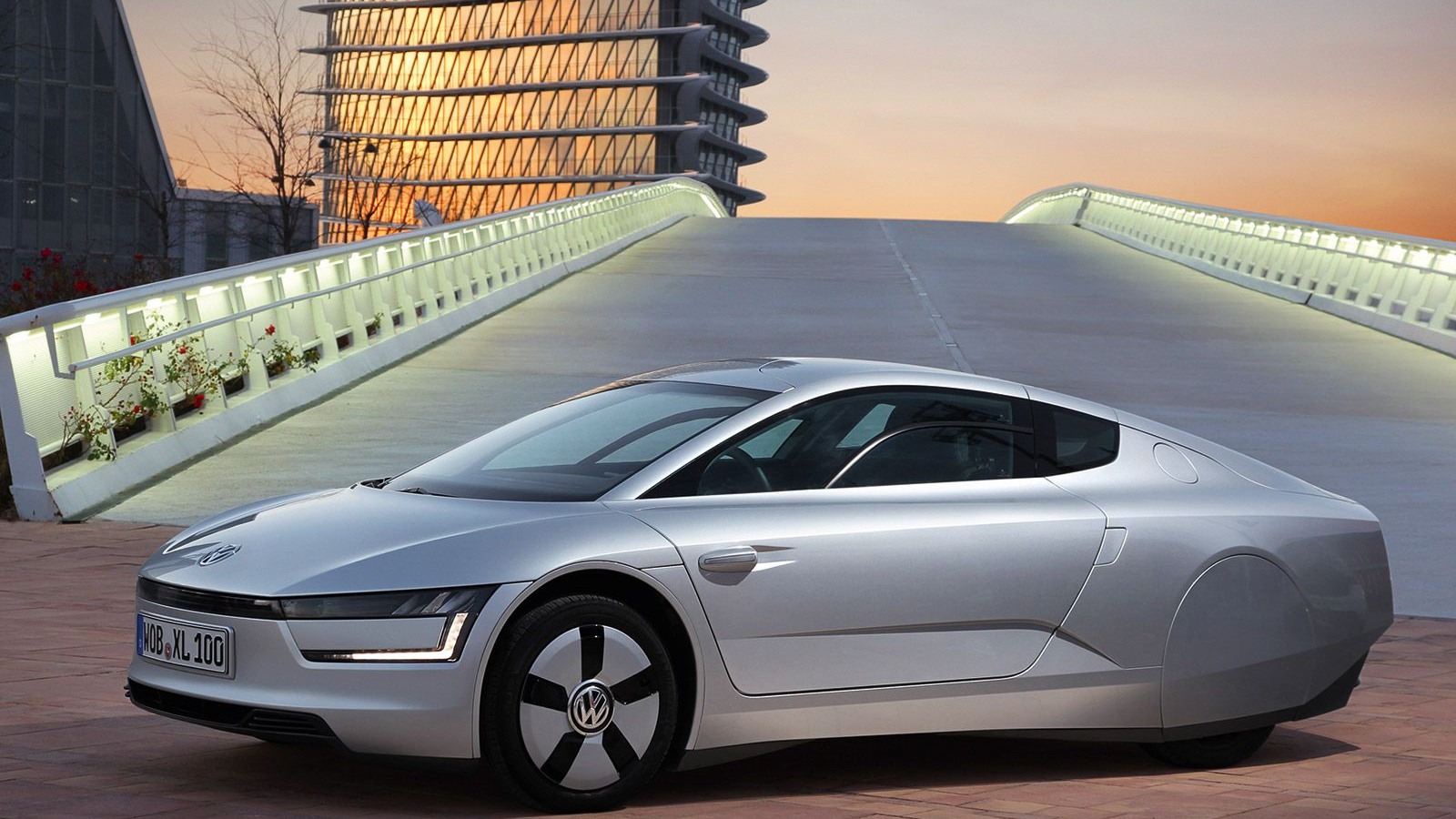
As someone who has grown up in Germany, I can be expected to be partial in my appreciation of German engineering. Having freely admitted to my automotive biases that were natured on Germany's autobahn, let me say how hugely impressed I am by the development of an ultra-efficient plug-in hybrid concept car by Volkswagen, the VW XL1. Look at it and you can see the possibilities of our automotive future.
‘Look at it and you have seen the possibilities of our automotive future.’
The company describes the XL1 as follows. It is equipped with a two-cylinder 800cc turbo diesel engine that delivers 35 kW and an electric motor that delivers another 20 kW. It is also equipped with a lithium-ion battery pack and a seven-speed dual-clutch transmission. It features an unbelievable fuel consumption of 0.9 litres per 100km (or about 240 miles per gallon). Or better believe it, because this fuel efficiency is for real. The vehicle is expected to have an all-electric range of 50 km, a top speed of 158 km/h (about 100 mph), and quite reasonable acceleration.
Unfortunately, the vehicle will probably not be coming to a showroom near you. The company will only produce some 250 of them, retailing for nearly $150 thousand. The first cars hit the market in Germany this month. But with buyers lining up for Tesla's S model, I do not doubt that the concept cars will find willing buyers.
The XL1 is innovative in at least two dimensions. First, it has pushed the envelope with respect to hybrid engines, combining a super-efficient turbo diesel with a state-of-the-art electric motor. The TDI engine alone brings fuel consumption down to about 2.0 litres per 100km. The electric motor doubles that fuel efficiency. These numbers are hugely impressive, but what may go less noticed is the second frontier of innovation: vehicle weight. The XL1 has a curb weight of only 795 kg. This has been achieved by using an unpainted frame made out of carbon fibre and other light-weight materials. Steel accounts for less than a quarter of the weight. Weight is a critical factor for fuel efficiency, and reducing weight is probably more efficient than improving engine designs. The obvious question is whether lighter weight reduces safety. After all, in an impact heaver vehicles have the benefit of bigger momentum. The good news is that light-weight carbon fibre materials have better strength than steel designs.
While you probably won't end up driving a VW XL1, you can expect that the numerous innovations will make their way into other vehicles, from Volkswagen's other models to those (eventually) of other manufacturers. Imagine a world in which average fuel consumption dropped from 10 litres per 100 km to one-tenth of that. This dream is about to become reality.